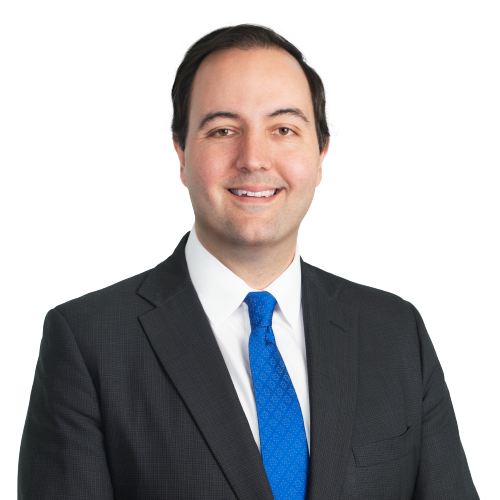Do Choice-of-Law Provisions Curb Fla. Telemarketing Claims?
- The addition of a private right of action under the statute.
- The inclusion of a broad definition of autodialer as "an automated system for the selection or dialing of telephone numbers."
- The elimination of the prior existing relationship framework, which allowed calls to be made to potential customers with whom the caller had an existing relationship.
There were other amendments to the statute as well. But those other amendments are much less important in the grand scheme of things, as demonstrated by the fact that there have been at least 500 class actions filed under the FTSA since the July 1, 2021, amendments — and they almost exclusively relate to these three amendments.
Many companies being sued for alleged FTSA violations are national companies based in states other than Florida who engage in placing calls to Florida residents.
When the relationships between the parties in these cases are the result of a contract — e.g., a service agreement or terms and conditions — those relationships are often expressly governed by the law of states other than Florida.
This raises a critical question that has yet to be squarely addressed in an FTSA case: When the parties' contract specifies that another state's law applies, can a plaintiff successfully bring an FTSA claim?
We acknowledge that this analysis may in part depend on which state's law governs, and whether that state has any analogous telemarketing regulations.
But at this point, most states have telemarketing statutes that create rules governing outbound calls and text messages to individuals within their states, including rules relating to calling time, disclosures, consent, opting-out and other issues covered by the FTSA and the federal Telephone Consumer Protection Act.
So the question is whether a plaintiff who has agreed to be bound by another state's law will have effectively waived any claim under the FTSA. We are not aware of any court that has weighed in on this issue in an FTSA case, but there is ample Florida precedent with respect to other frequently litigated Florida consumer statutes.
In the context of other Florida statutes, Florida courts have consistently enforced choice-of-law provisions to preclude statutory claims.
As then-U.S. District Judge Robin Rosenbaum observed in the 2014 Herrsein Law Group. v. Reed Elsevier Inc. case in the U.S. District Court for the Southern District of Florida, under Florida law, "a choice-of-law provision that provides for the application of non-Florida law precludes a claim under the FDUTPA."
As Judge Rosenbaum noted in Herrsein, while finding it was appropriate to enforce an Ohio choice-of-law provision, though that meant a Florida statutory claim could not stand,
A choice of law provision in a contract is presumed valid until it is proved invalid ... Generally, Florida enforces choice-of-law provisions unless the law of the chosen forum contravenes strong public policy.
The Southern District of Florida also cited Herrsein in Barnes v. StubHub Inc. in 2019. Likewise, in the 1994 Hardee's Food Systems Inc. v. Bennett decision, U.S. District Judge Donald Graham of the same court concluded that where a contract provided that North Carolina law would govern the parties' relationship, "[t]he choice of law provision…preclude[d] Defendants' statutory claim [under Florida law]."
Andhile Herrsein, Barnes and Hardee's Food Systems were all brought under the Florida Deceptive and Unfair Trade Practices Act, this line of authority is not limited to FDUTPA cases.
For instance, in Beckel v. Fagron Holding USA LLC, U.S. Magistrate Judge Amanda Sansone of the U.S. District Court for the Middle District of Florida found in 2017 that a statutory claim under Florida Statute Section 517.301 could not stand because "[a]n enforceable choice of law clause providing that Delaware's substantive law applies bars claims brought under Florida's (or any other state's) statutory law."
This principle cuts both ways, and may bar the application of other states' laws where parties agree that Florida law controls.
The 2013 decision by U.S. District Judge Kathleen Williams of the Southern District of Florida in Martin v. Creative Management Group Inc. is particularly instructive.
In Martin, relying on Sections 190 and 191 of New York's Labor Law, the plaintiff "asserted that he [was] owed damages for deferred and unpaid wages." The plaintiff argued "that
[the] Defendant violated New York Labor Law by (1) failing to pay [the] Plaintiff's salary for seven months ... and (2) deferring [the] Plaintiff's salary without repayment."
Judge Williams found, however, that
Plaintiff's claim ... runs afoul of the choice-of-law clause of his employment contract, which states that Florida law will govern any disputes over the subject matter of the contract. … Where the parties agreed to a choice-of-law provision in their contract, claims brought under the statutes of other states are generally inapplicable.
Judge Williams concluded that "[i]nasmuch as Plaintiff seeks to invoke New York's Labor Law to enforce the terms of the contract, which by its own terms is to be governed by Florida law, the Court declines to enter…judgment for Plaintiff on this claim."
Many other cases are in accordance, including Arndt v. Twenty-One Eighty-Five LLC, in which the Southern District of Florida found in 2020 that an "[a]greement's choice-of-law provision precludes Plaintiffs' state-law claim under the [Florida Consumer Collection Practices Act]."
In 2011 in Morocho v. Carnival Corp., the Southern District of Florida said, "[w]here the choice-of-law provision at issue requires that Panamanian law be applied, this precludes Plaintiffs statutory claims under U.S. law and precludes even the possibility that U.S. law will be applied to Plaintiff's non-statutory claims."
And in Durham Commercial Capital Corp. v. Select Portfolio Servicing Inc. in 2016, the Middle District of Florida found that because the contract issue called for New York law, it was appropriate to "apply Article 9 of the Uniform Commercial Code ('UCC'), as adopted by the State of New York, [which] governs secured transactions," as opposed to Florida's corresponding version of the UCC.
Further, while it is generally possible to bring Florida statutory claims outside of Florida, courts outside of Florida will not permit such claims to proceed where there is a choice-of-law provision that calls for non-Florida law.
For example, in Mathews v. PHH Mortgage Corp. in 2020, the U.S. District Court for the Northern District of Oklahoma found that a FDUTPA claim could not proceed where contract was governed by an Oklahoma choice-of-law clause.
Similarly, in Sherman v. PremierGarage Systems LLC, the U.S. District Court for the District of Arizona deemed in 2010 that it was "appropriate and just to enforce [a] choice-of-law provision—agreed to by both parties—to preclude the [plaintiff's] FDUTPA claim)."
Finally, when there is a Florida statutory claim, and a non-Florida law choice-of-law provision, courts may deem the Florida statutory claim as having been brought under the law of the state whose choice-of-law provision is in play.
In fact, this is what happened with former President Donald Trump's FDUTPA claim against Twitter Inc.
After U.S. District Judge Robert Scola of the Southern District of Florida transferred the case to the U.S. District Court for the Northern District of California based on a mandatory forum selection clause, U.S. District Judge James Donato of that court construed the claim as if it were a California statutory claim last year.[7]
We believe it is only a matter of time before this argument plays out in FTSA cases. And the outcome will be very significant — either way — in determining the long-term impact of this statute on businesses around the country.
Reprinted with permission from Law360.


